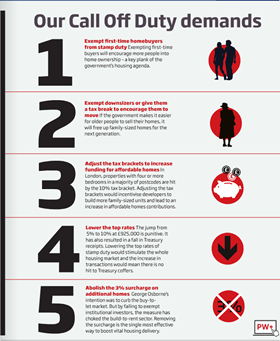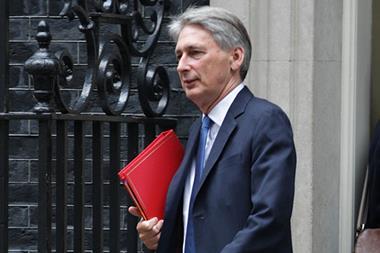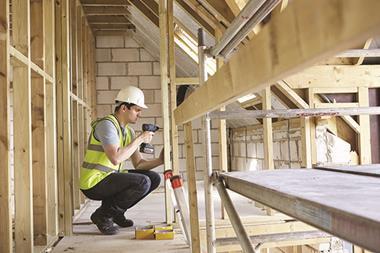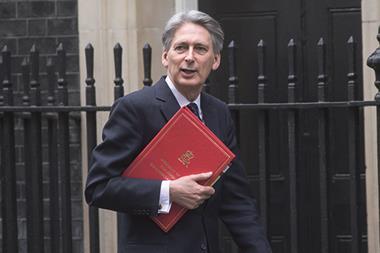
Expectations were high ahead of this week’s Budget after the chancellor Philip Hammond revealed at the weekend that he would be announcing a target to build 300,000 homes a year.
It is a significant increase on the previous target of 250,000 homes a year, which the government has yet to hit. In the 2016-17 financial year, just over 217,000 new homes were completed.
Here is a summary of the key measures announced in Wednesday’s Budget to help meet the new target and address the housing crisis:
Stamp duty

As Hammond appeared to be concluding the section of his speech on housing, a voice could be heard in the background shouting: “That’s it?”
Then he brought the house down with his final pledge to abolish stamp duty for first-time buyers up to £300,000, which was one of the key demands of Property Week’s Call Off Duty campaign.
The chancellor said the reform, which also applies to the first £300,000 of the purchase price of properties up to £500,000, meant 80% of first-time buyers would pay no stamp duty at all.
“When we say we will revive the homeowning dream in Britain, we mean it,” the chancellor said.
In another step to help people get on the housing ladder, he said the government would ensure councils in areas of high demand permit more homes for local first-time buyers and affordable renters. More detail on that will be set out “in due course”.
Building delays
An “urgent review” into the gap between planning permission being granted and housing starts will be commissioned with an interim report due in time for the Spring Statement next year.
If it finds that land is being held back for commercial reasons, Hammond warned that the government would intervene to bring development forward using compulsory purchase powers if necessary. He noted that in London alone “270,000 planning permissions were unbuilt”.
More money
Over the next five years, at least £44bn will be committed in the form of capital funding, loans and guarantees to support the market. Of this, £15.3bn is new money.
This includes an extra £2.7bn to more than double the Housing Infrastructure Fund and £8bn of new financial guarantees to support private housebuilding and the build-to-rent sector. In addition, he said £34m would be provided to improve construction skills.
Will it work?
The industry welcomed many of the measures in this week’s Budget, particularly the cut to stamp duty. However, few believe it goes far enough…
- “The pledged £44bn package of housing support seems positive, but it does not represent the kind of comprehensive strategy we need.” - Lewis Johnston, RICS parliamentary and public affairs manager
- “The government has an enormous mountain to climb to achieve 300,000 homes per year by the 2020s and tackle decades of undersupply, yet today’s Budget was certainly no ‘game-changer’ moment for the development market.” - Ian Anderson, Cushman & Wakefield’s planning and development partner
- “This is a step-change for first-time buyers, recognising the challenges that those trying to climb on to the property ladder face in saving for a deposit.” - Gráinne Gilmore, Knight Frank’s head of UK residential research
- “The autumn Budget was billed by some as the housing Budget. It was supportive of home ownership and housebuilding, but did not include enough measures to solve the housing shortage.” - Anthony Coding, Jefferies equity analyst






























No comments yet